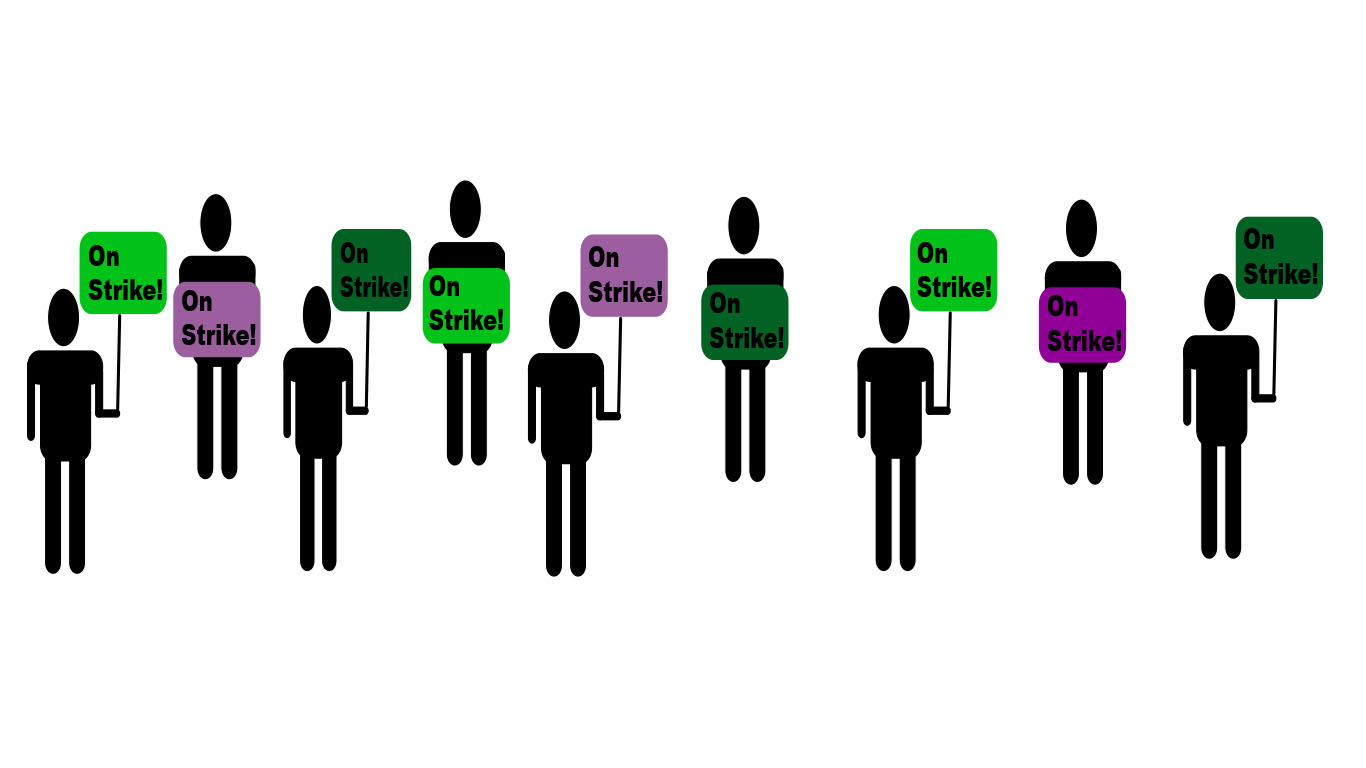From REVP's Desk
By Jack Bourassa
It’s been a tumultuous year for unionized workers in the Northwest Territories and Yukon. Nunavut has also had its share of problems in recent years. Currently, almost 4,000 workers are facing a potential strike and time on a picket line in the Northwest Territories.
Employers are taking a hard line in negotiations, leaving many workers with no choice but to strike to bring about change.
That’s why it’s important to talk about picket line etiquette, and why it’s so important to never cross a picket line.
The problem with crossing a picket line, whether you’re a co-worker or simply a bystander in the strike, is that you undermine the work of everyone who is fighting for change.
If you’re an employee that chooses to cross the line and work while others forgo their wages and withdraw their labour, you have, whether you like it or not, damaged your coworkers’ ability to negotiate with the employer.
Being part of a trade union is about solidarity and collective action. If there is a democratic mandate for a strike, even those who voted against it should support the strike. It’s a unified movement, and only by standing together can you achieve positive change.
Crossing a picket line has been frowned upon for hundreds of years; since the very beginning of the union movement itself, in fact. It used to be nearly sacrilegious to cross a picket line, with strikebreakers labeled “scabs” and shunned by their peers.
The very word itself has dirty origins, first coming into play in England around 1250, referring to diseases of the skin. It later cropped up in the labour movement by the late 1700s, as it was used to insult workmen who wouldn’t join a strike, join a union or take part in organized labour.
Early the next century, “scab” started being used to specifically target workers who crossed a picket line or took the place of striking workers.
The term is still used today, although it doesn’t have the same emotional impact it once did.
But crossing a picket line is no less harmful, and only prolongs a strike instead of bringing it to an end.
In most labour disputes today, management holds all the cards. Over the years, unions have been considerably weakened by dwindling membership, hostile legislation and negative press from right-wing media.
When people who work together have a disagreement, they deserve the right to settle it on an even playing field. When workers go on strike, it is never an easy decision and isn’t anyone’s first choice. No one likes a strike; not the company, not the workers and not the public. When a company can neutralize a strike by immediately hiring replacements, how does that level the playing field?
Workers have no source of power but the ability to withhold their labour from their employer. Making a conscious choice to respect a picket line isn’t a vote in favour of the union. It’s a way of letting the two sides resolve their differences fairly and equally.

